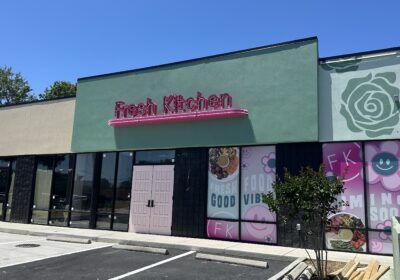International students face visa challenges after graduating
Bijith Mankidy, a Ph.D. student studying chemical engineering, will be graduating in December.
As an international student from India, Mankidy has an F-1 student visa, and has been in the U.S. for the last five years. After graduating his visa permits him 60 days before he has to return to India.
Mankidy is one of more than 1,400 international students at USF under many different student visas.
Friday afternoon, David A. M. Ware, of the law firm Ware Gasparian, spoke to many of the students about immigration options after graduation.
Luis Morraz, a senior majoring in industrial engineering, plans to graduate in the spring, but is uncertain as to what to he will do after graduation. As a student from Nicaragua, his student visa will expire if he doesnt go to graduate school.
Ideally, I would like to get a job offer before I graduate, but it is hard for me to find a job, he said. After I start working for a company, I can keep a work visa for another two to three years.
Mankidy attended the event held in the Kiran C. Patel Center for Global Solutions, which was also attended by more than 50 USF students and recent graduates from foreign countries.
I need to know what the details are, and what the next step is before applying for a job, Mankidy said.
Ware told students to be careful of whose advice they seek.
Dont get advice from your friends and relatives, Ware said. Thats probably the worst advice you can get.
He told students to limit who they get their advice from to their international office or a qualified and experienced immigration attorney. He warned them to avoid notarios, Spanish for notaries, commonly found in South Florida who pose as immigration consultants, only to commit fraud at the expense of immigrants.
For students studying under an F-1 student visa, as is the case for the majority of international students, Ware recommended taking advantage of Optional Practical Training (OPT), which gives students the opportunity to work in their field of study for twelve months after graduation.
OPT acts as a bridge between your studies and the workplace, Ware said. Without that bridge its very, very hard to break into the U.S. workforce, to get a job in the United States.
STEM (Science, Technology, Engineering, and Math) majors can apply for an additional 17 months of OPT because of a high demand in their field, Ware said. Students can only receive one year of OPT for each level of graduation, bachelors, masters, and Ph.D.
Nicolas Kourtellis, a recent USF graduate from Cyprus who received a Ph.D. in computer science, said he already received his OPT status, but has not yet found a job.
The process takes a while, he said. The more skilled you are as a job seeker the harder it is to find jobs, because there are less and less job opportunities that match your skills.






